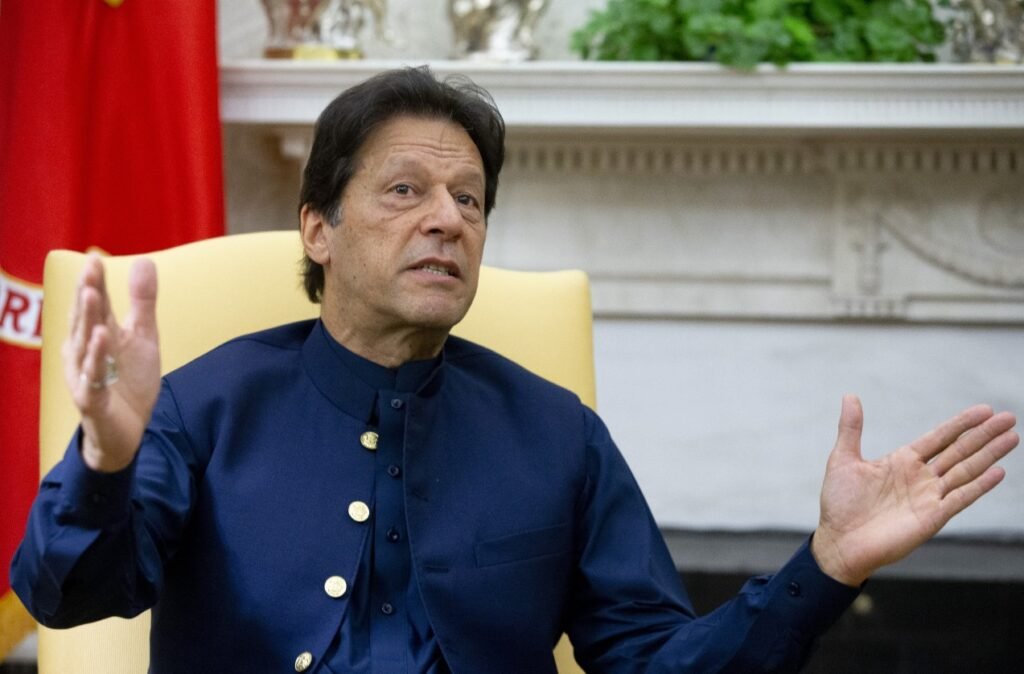Former Prime Minister of Pakistan, Imran Khan, has been sentenced to three years in prison for violating electoral laws and engaging in corrupt practices. He was arrested on August 5th, 2023, and taken to a district jail in Attock in Punjab province. He has also been banned from politics for five years.
Mr Khan denies any wrongdoing and has unsuccessfully appealed the conviction. He claims that the charges are politically motivated and orchestrated by the army, which has been trying to remove him and his party, Pakistan Tehreek-e-Insaf (PTI), from the political scene. He has accused the generals of trying to assassinate him last November and of rigging the elections in 2018.

The case has exposed a taste for cash and bling that is at odds with Mr Khan’s image as a pious anti-corruption crusader. He was found guilty of accepting illegal donations from foreign sources, spending beyond the legal limit, and failing to disclose his assets. The court also seized his properties, including a lavish farmhouse in Islamabad and a luxury apartment in London.
Army reshapes Pakistan’s political system
Mr Khan’s conviction is the culmination of a campaign by Pakistan’s powerful army to regain control over the country’s politics. The army has been unhappy with Mr Khan’s political grandstanding and his mismanagement of Pakistan’s faltering economy. In April 2022, he was removed from office in a vote of no confidence, which he alleged was engineered by the army.
Unlike some of his predecessors, Mr Khan refused to go quietly and launched a series of rallies across the country, attacking the army and its chief, General Qamar Javed Bajwa. He also mobilized his supporters to protest against the military’s interference in civilian affairs. In May 2023, his supporters clashed with security forces and vandalized military installations.
The army responded by cracking down on Mr Khan and his party, arresting hundreds of his loyalists and dissolving the PTI. The government of Shehbaz Sharif, who replaced Mr Khan as prime minister with the army’s backing, has openly mulled banning the PTI altogether. Mr Khan faces dozens of other charges, including treason and blasphemy, which could land him in a military court or even on death row.
The army has also reshaped Pakistan’s political system in its favor, with the help of a pliant parliament and a compliant judiciary. It has passed several laws that grant sweeping new powers to the armed forces and intelligence agencies, alarming civil rights groups and international observers. It has also given the caretaker government, which took over on August 9th after the parliament completed its term, the authority to negotiate with the IMF and sign foreign investment deals.
The caretaker government may also stay longer than the 90 days prescribed by the constitution, as the army has ratified a new census that could require a fresh demarcation of electoral constituencies. The outgoing law minister said this could delay the elections by at least five months.
Implications for regional stability and democracy
Mr Khan’s downfall and the army’s ascendancy have raised concerns about Pakistan’s stability and democracy, both internally and externally. Mr Khan still enjoys a large following among the urban youth and the religious conservatives, who see him as a champion of change and justice. His imprisonment could spark more unrest and violence in the country, especially if he is mistreated or harmed in custody.
The army’s tightening grip on power could also affect Pakistan’s relations with its neighbors and allies, especially India and America. Mr Khan had tried to improve ties with India, which have been strained by decades of hostility and mistrust. He had also sought to balance Pakistan’s dependence on China with its engagement with America, which has been wary of Pakistan’s role in Afghanistan and its nuclear ambitions.
The army, however, has a different vision for Pakistan’s foreign policy, one that is more confrontational and assertive. It sees India as an existential threat and China as an all-weather friend. It also views America as an unreliable partner and a potential adversary. The army may pursue more aggressive policies towards India and Afghanistan, risking escalation and conflict. It may also resist American pressure to curb its support for militant groups and to cooperate on counter-terrorism.
Pakistan’s army is back in charge of politics, but at what cost? The country faces an uncertain future, as it grapples with economic woes, social divisions, security challenges, and international isolation. The hopes of millions of Pakistanis who voted for Mr Khan and his promise of a new Pakistan have been dashed by the old guard of the generals.
